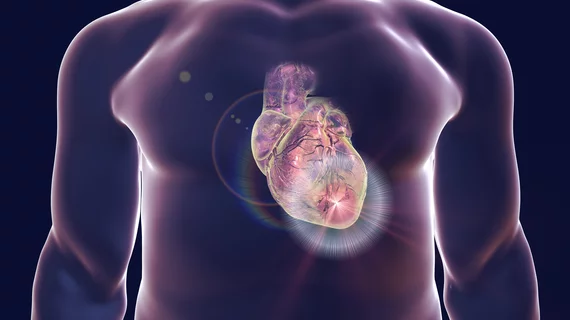Ultrasound outperforms legacy technique at pinpointing heart arrhythmias
A commonly available ultrasound technique proved superior to a long-used approach at spotting abnormal heart rhythms and may help treat patients with this worldwide problem, according to recently published research.
The method—electromechanical wave imaging (EWI)—creates a 3D cardiac map to pinpoint electromechanical activity that causes arrhythmias, investigators with Columbia University in New York reported in Science Translational Medicine. Most care settings have this portable machine handy and can use it during ablation procedures to accurately guide the catheter to the proper area.
And when put to the test in a small group of patients, EWI vastly outperformed the standard electrocardiogram at predicting arrhythmia locations, according to Randy King, PhD, of the National Institute of Biomedical Imaging and Bioengineering, which partially funded the study.
“This work is an outstanding example of taking a technology that is readily available in hospitals and clinics and adapting it to fill a critical clinical need,” King, director of the NIBIB program in Diagnostic and Interventional Ultrasound, added in a statement on Monday.
For their clinical trial, the team compared EWI ultrasound to ECG in 51 patients undergoing catheter ablation. Results showed that ultrasound accurately predicted 96% of arrhythmia locations compared with 71% using a standard 12-lead ECG.
Building off their success, the group is planning a long-term trial to determine if the ultrasound-based technique can reduce ablation times, costs, and other factors.
“We believe the eventual routine use of the technique could significantly reduce complications and the need for repeat procedures—ultimately providing better outcomes for patients and clinicians,” said lead researcher Elisa Konofagou, PhD, a professor of biomedical engineering and radiology at Columbia.

